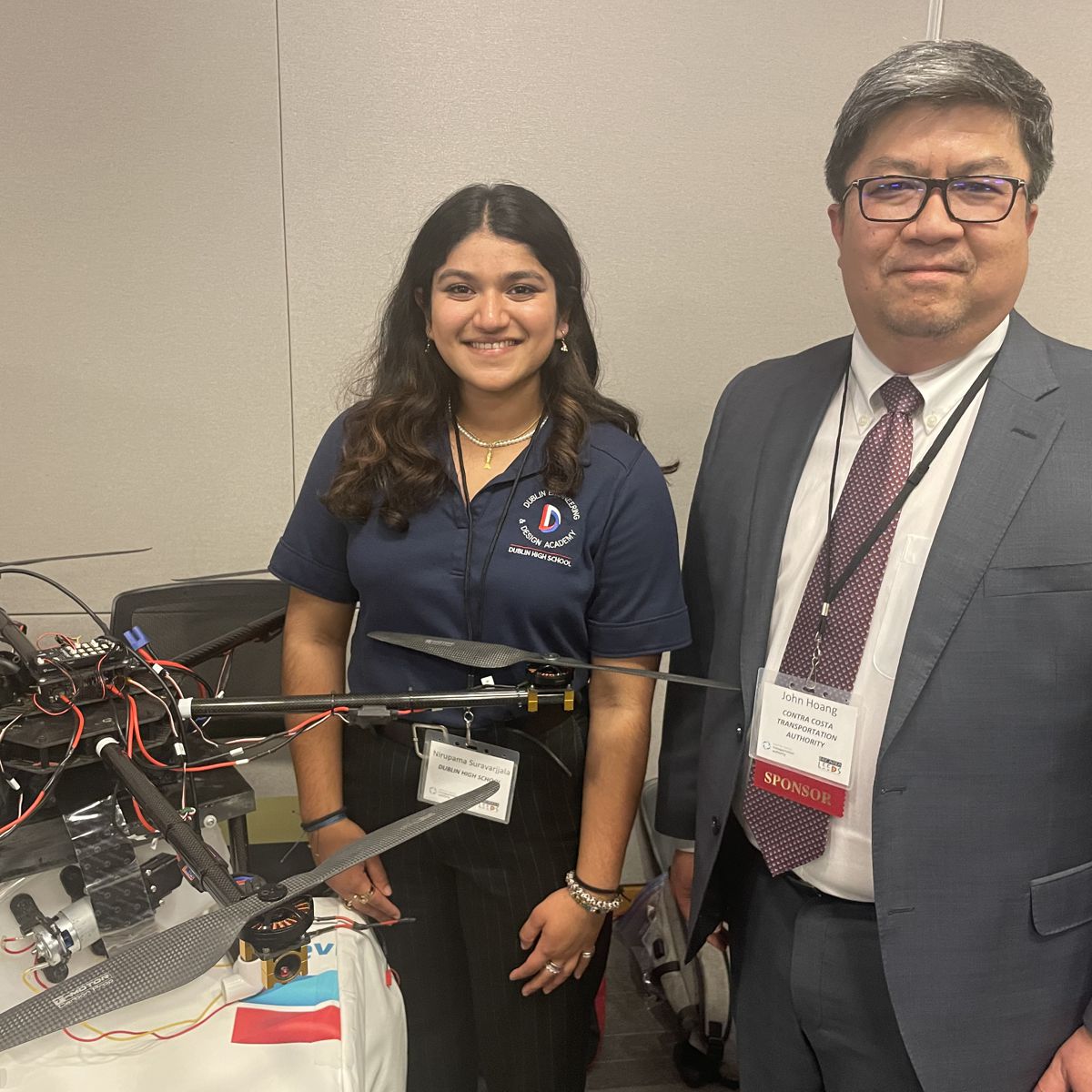Bay Area LEEDS Strengthens the Workforce Pipeline
Bay Area LEEDS Strengthens the Workforce Pipeline

Bay Area LEEDS (Linking Education and Economic Development Strategies) works to strengthen the workforce pipeline by helping prepare youth for careers in science, technology, engineering, and math (STEM) with relevant industry tools and skill sets. The nonprofit collaborates with business and educators to excite students about pursuing purposeful, post-secondary pathways aligned with high-wage, high-skill, and high-demand jobs in the global economy.
The Walnut Creek-based nonprofit is one of the few business-education intermediaries in the Bay Area that focuses on long-term talent development solutions to workforce shortages by engaging STEM career pathway educators and employers with high-demand, difficult-to-fill STEM jobs. "Through innovative programming, we develop, plan, and execute industry-supported approaches that build a more diverse, inclusive, and equitable talent base assuring economic vitality in our local communities," says April Treece, who has been Bay Area LEEDS Chief Executive Officer for 21 years.
Recently the Tri-Valley Regional Occupational Program awarded a multiyear grant to the nonprofit, part of which supports the creation and implementation of four 2022 summer camps for high schoolers in the Livermore Valley, Pleasanton, and Dublin school districts. Drone Coding & Flight is open to eligible students who start ninth grade in the fall. Two camps, Robotics & Manufacturing and Food Innovation in Culinary Arts, are open to incoming 10th, 11th, and 12th grade students. Girls Who Design & Construct is open to incoming 10th, 11th, and 12th grade girls.
"Bay Area LEEDS' Tri-Valley Summer Academies are focused on industry sectors in the East Bay which have careers in high demand, and that are high-skill and sustainable-wage," notes Treece. "These enrichment opportunities allow participants to explore theory and practice in five- to ten-day experiences that blend hands-on exploration, field visits in industry, problem-solving, and expert viewpoints."
In all that it does, Bay Area LEEDS purposefully blends talent pipeline development with high school transformation and sustained business engagement, according to Treece. "Employers can no longer consider the work that they do in high school as a ‘nice way to be engaged in the community.' Rather, industry needs to rethink talent recruitment and staff development strategies by playing a more active role in shaping the talent needed while also building a culture of ongoing learning and innovation. Given the costs of higher education in the U.S. and underproduction of science and technology graduates with diverse backgrounds, including high school career pathways as a human resource strategy offers a talent development approach that builds a diverse, skilled workforce as well as an internal infrastructure to reinforce a learning culture."
There are myriad ways that businesses and businesspeople can get involved in the STEM effort. All Bay Area LEEDS' programming is developed based upon businesses' expressed needs and interests, and business support is critical to the success of programs driven by Bay Area LEEDS. The upcoming summer camps, for example, will rely on businesses to provide keynote speakers, facility tours, career panelists, and judges for student projects. In the fall, industry can help provide teachers with experiences at their worksites aligned with the theme of the career pathway (Engineering, Computer Sciences, BioMedical/Health, and others). Women in STEM can serve as one-day mentors at the nonprofit's Girls Lead The Way Summit being held in San Ramon in October or November.
"Students cannot be what they don't see, nor can their teachers provide relevancy in classrooms when they don't know where the connections are between their curriculum and the world of work," says Treece.
For more information about Bay Area LEEDS, please visit ba-leeds.org, www.facebook.com/BayAreaLEEDS, or www.linkedin.com/company/bay-area-leeds.




